World War Two (primary sources)
Where can I find primary sources for World War Two?
(Years 7-10)

Image: Five World War Two nurses, including Jean Bond by [unknown]. Collection: Picture Wairarapa. On DigitalNZ.
Entry last updated: 10/07/25
Introduction
Primary sources are things like letters, diaries, photos, poems and other documents and objects created during the war or soon after by people who were involved in it. These sources can give you information about what life was like during the war, and about the sort of language they used during those times.
New Zealand websites
Although there aren't as many sites with World War Two primary documents as there are for World War One, there are still some good websites that have primary source material (like letters, diaries, and photos). These sites have excellent information about New Zealanders or New Zealand's involvement in World War Two.
This website is great for newspaper articles published in New Zealand about World War Two.
Choose newspapers and you will have the option to limit your search by title, region or date.
Search for 'Monte Cassino' and use the date filter to limit searches between 1939 and 1945.
Select Further Gains to read about the Allied advance during the battle of Monte Cassino.
Or search for other keywords like 'war', 'prisoners of war', or 'Dunkirk'.
Sometimes just the headline will display. In this case, choose text then View the full page to see the article in its original form.
Tips: We like Papers Past because it is from a government organisation (the National Library of New Zealand). You can tell this by their web address, which includes .govt.
Christchurch City Libraries has started digitising a small collection of primary sources relating to World War Two. Their collection has a small number of diaries, letters and photographs from World War Two.
From the home page, go to Explore.
Go to Local history, and select Digital Heritage.
Look under the heading Wars and conflicts on the left side of the page.
Choose WWII.
Here you will find a small selection of World War Two primary sources, including letters, diaries, postcards, and a Troopship magazine.
Tips: Hand writing can be difficult to read - take it slowly, and look out for letters and words you can recognise and compare them with ones you're not so sure about.
New Zealand Electronic Text Collection
If you are looking for more detailed written sources, published not long after the war by people who were there, this website has a collection of digitised books about World War Two. These include:
Journey Towards Christmas: Official History of the 1st Ammunition Company, Second New Zealand Expeditionary Force, 1939-45.
Shovel, Sword and Scalpel: a Record of Service of Medical Units of the Second New Zealand Expeditionary Force in the Pacific.
To explore this website further:
Look on the right side of the page under Browse Collection.
Under subjects select New Zealand History.
Then choose New Zealand World War Two History.
Select a book like 28 (Māori) Battalion.
Go to Chapter One to start reading.
Tips: We like sites like this because they’re reliable. You can tell by their web address. This website has .ac in the web address because it belongs to Victoria University.
This website has films and documentaries that have appeared on New Zealand television, and series created for the internet. Although some of these sources were recorded many years after World War Two, they are still a valuable resource.
Search for 'World War Two'.
Select The World War II Collection.
This collection has various film sources, both primary and secondary, including the Memories of Service collection which has interviews with veterans.
Tips: Websites that have .com or .co in the address can have good information, but you need to assess how reliable it is. Check the About us link on this website. This can tell you what the company’s mission and values are.
Courage and Valour: New Zealanders in the Italian Campaign
This website has an audio documentary series featuring Kiwi Veterans telling their stories of fighting in Italy in WWII. It also contains a glossary of terms and slang used in the documentaries.
Select Interview Participants to learn about the veterans who appear in the audio series.
Go to Don Adams then select The Adriatic to listen to the episode where he recounts his experiences.
Tips: A good way of checking the reliability of a website is looking at the About page, if you can find one. This should tell you what the organisation or company's purpose and values are. On this website it is called Introduction.
General websites
These sites have more primary sources about World War Two from around the world. Remember that diaries and letters show how that person experienced the war.
Canadian Letters and Images Project
The Canadian Letters and Images Project is an online archive of the Canadian war experience, as told through the letters, diaries, photographs, and other related materials of Canadians themselves. This project began in August 2000 and is located in the Department of History at Vancouver Island University.
To search for specific items:
Go to Collection Search.
Under Collection choose WW2.
Select Diary under the heading document type to view diary entries.
Go to Dawkins, Arnold F.A. to view Arnold's diaries and read information about his service.
Tips: You can browse the WW2 collection by the individual names by choosing World War Two Collection under Collections at the top of the home page.
The Poetry Foundation publishes Poetry magazine which has a selection of poems from and about the Second World War.
Search for 'World War II'.
Select the page World War II Poets to find poets from different countries who wrote about and during World War II.
Tips: A good way of checking the reliability of a website is looking at the About page. This should tell you what the organisation or company's purpose and values are.
WW2 People's War is an online archive of wartime memories contributed by members of the public and gathered by the BBC (British Broadcasting Corporation). As the site is archived there isn't a search option, but if you are after a specific place or event there are instructions on how to search by using a search engine on the About this Site page.
Explore the archives by choosing the Full Archive List button.
Or, choose Timeline to navigate through the various categories in date order.
Tips: Web archiving is the process of collecting portions of the World Wide Web to ensure the information is preserved in an archive for future researchers, historians, and the public.
World History (Gale In Context)
This EPIC database provides an overview of world history, including World War Two.
To find the best primary sources:
Search for 'World War II' in the search box.
Choose World War II, 1939-1945 from the drop down list.
Look down the page and select Primary Sources.
Hover over the coloured shapes to see the reading level.
Tips: To use the EPIC resources, you need a password from your school librarian. Or chat with one of our AnyQuestions librarians to help you online. Some EPIC databases may also be available through your public library.
The Witness to War Foundation is dedicated to capturing the stories of individual combat veterans. This is a great site to start exploring what life was like for soldiers during the war. Combat Stories has videos recorded after the event which can be viewed on the site.
From the home page choose Photos and Memoirs.
Choose Memoirs/Stories.
Select WW2 to view letters, personal accounts and full memoirs from people who served in World War Two.
Tip: You can then refine your selection on the left to the Branch of Service or document type. Some of the downloads are quite large, but contain lots of information about daily life and events that soldiers experienced.
Books
There have been many books written about World War Two - check out your local public or school library to see what they have.
Some suggested titles are:
Utterly Unbel!evable: World War II by Adam Frost.
Surprising spies: unexpected heroes of World War II by Karen Gray Ruelle.
Diary of a Kiwi Soldier in World War II by Cecil Coughlan.
The World War II Book by Adrian Gilbert, Simon Adams, John Farndon, Jacob F Field, R G Grant, Joel Levy, Olivia Smith and Christopher Westhorp.
SCIS no: 1892969
Topics covered
Related content
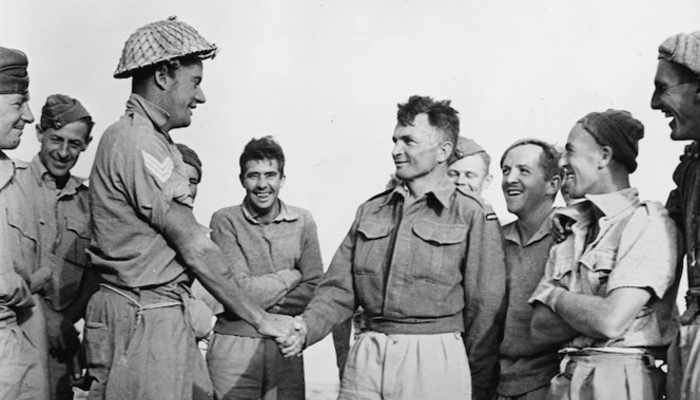
Charles Upham (1908–1994)
Where can I find information about Sir Charles Upham?
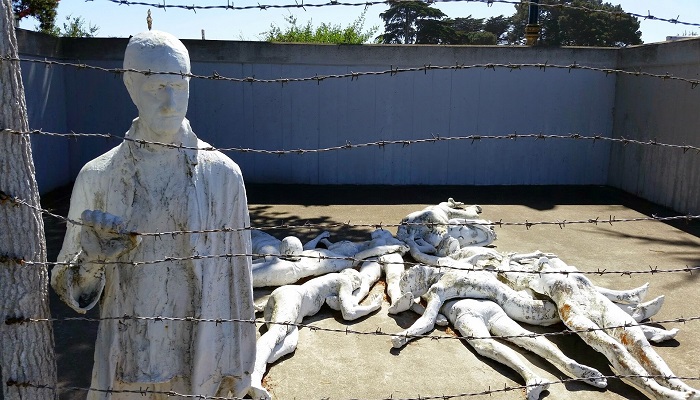
Holocaust (World War 2)
Where can I find information about the Holocaust?
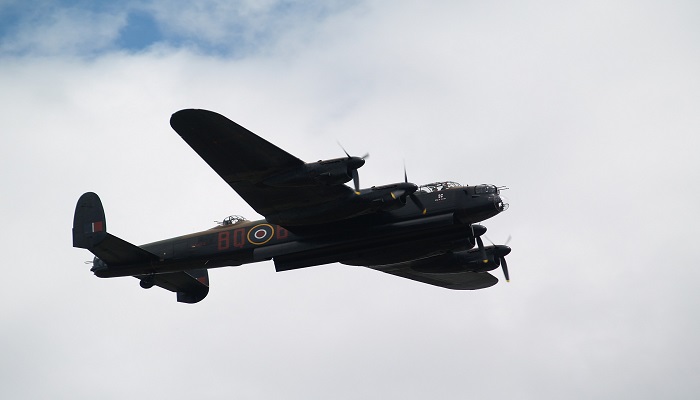
World War Two
Where can I find information about World War Two?
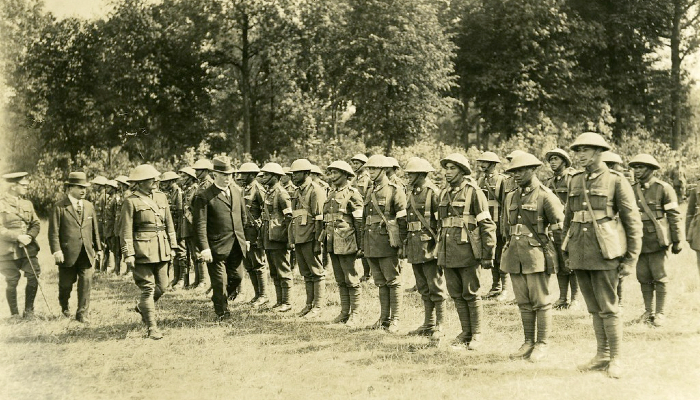
Māori Battalion
Where can I find information about the Māori Battalion?
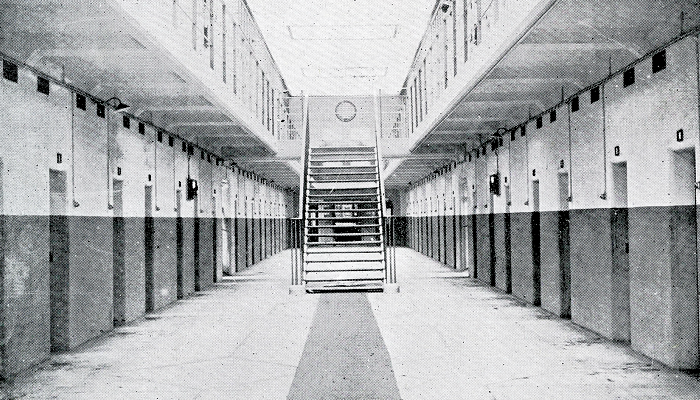
Conscientious objectors
Where can I find information about conscientious objectors?
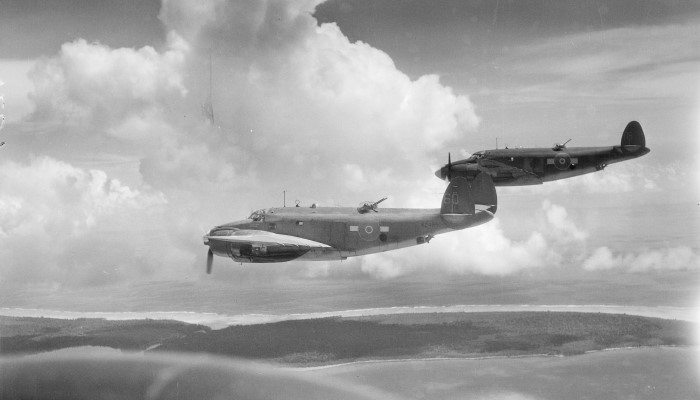
World War Two (battles and campaigns)
What were the main battles or campaigns of World War Two that New Zealanders were involved in?
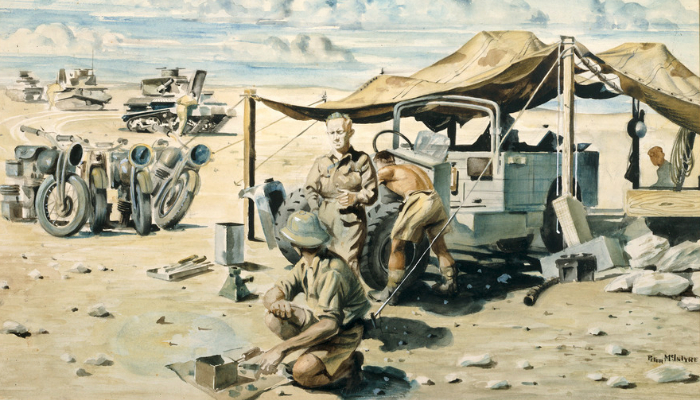
World War Two (causes and impacts)
Where can I find information about the causes and impacts of World War Two?
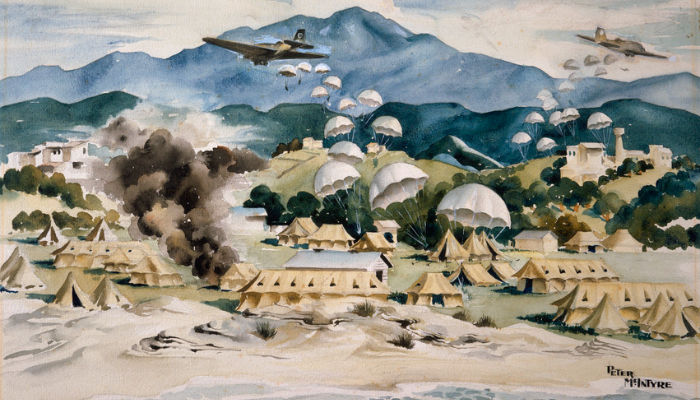
World War Two (NZ involvement)
Where can I find information about New Zealand's involvement in World War Two?
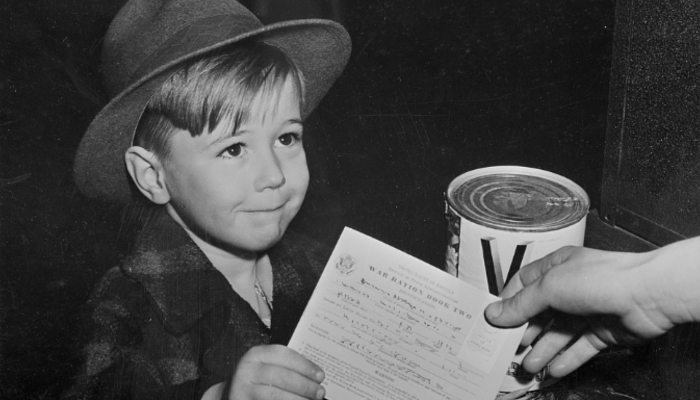
World War Two (daily life)
Where can I find information about daily life during World War Two?
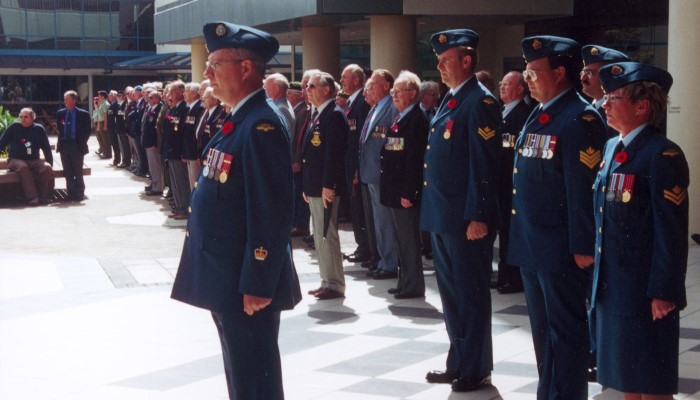
Changing views on conflict
Where can I find information about the local histories of Auckland | Tāmaki Makaurau?
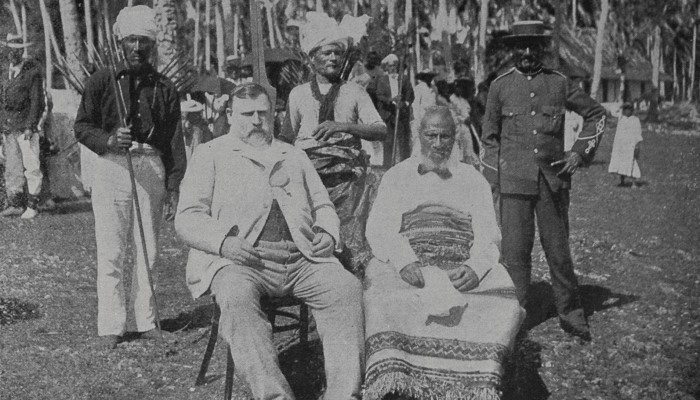
Colonial power in the Pacific
Where can I find information about the local histories of Auckland | Tāmaki Makaurau?
